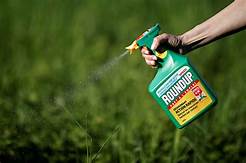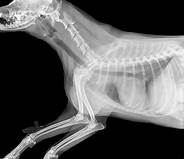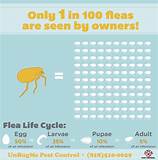Is Glyphosate Safe for Pets?
Glyphosate is a widely used herbicide that is commonly found in weed killers and garden products. It is also used in agriculture to control weeds in crops. While glyphosate is generally considered to be safe for humans, there is some concern about its potential effects on pets and other animals.

Toxicity of Glyphosate to Pets
The toxicity of glyphosate to pets depends on several factors, including the amount of exposure, the concentration of glyphosate, and the species of pet.
Dogs: Dogs are generally more susceptible to glyphosate toxicity than cats. A study conducted by the EPA found that dogs exposed to high levels of glyphosate experienced vomiting, diarrhea, and weight loss. In some cases, dogs may also develop liver and kidney damage.
Cats: Cats are less susceptible to glyphosate toxicity than dogs, but they can still be affected. A study conducted by the University of California, Davis found that cats exposed to high levels of glyphosate experienced skin irritation and respiratory problems.
Other Pets: Other pets, such as rabbits, hamsters, and birds, may also be affected by glyphosate exposure. The symptoms of glyphosate toxicity in these animals can vary depending on the species.
Symptoms of Glyphosate Toxicity in Pets
The symptoms of glyphosate toxicity in pets can vary depending on the amount of exposure, the concentration of glyphosate, and the species of pet. Some common symptoms include:
- Vomiting
- Diarrhea
- Weight loss
- Skin irritation
- Respiratory problems
- Liver and kidney damage
- Neurological problems
Treatment for Glyphosate Toxicity in Pets
If you think your pet has been exposed to glyphosate, it is important to seek veterinary attention immediately. The treatment for glyphosate toxicity will depend on the severity of the symptoms. In some cases, supportive care may be all that is needed. In other cases, more aggressive treatment, such as intravenous fluids and medication, may be necessary.
Preventing Glyphosate Toxicity in Pets
There are several things you can do to help prevent glyphosate toxicity in pets:
- Keep pets away from areas where glyphosate is being used.
- Do not use glyphosate-containing products on your lawn or garden if you have pets.
- If you must use glyphosate-containing products, wear protective clothing and gloves, and follow the instructions on the product label carefully.
- Rinse your pet's paws and fur thoroughly with water if they come into contact with glyphosate.
- If you think your pet has been exposed to glyphosate, seek veterinary attention immediately.
Declaration: All article resources on this website, unless otherwise specified or labeled, are collected from online resources. If the content on this website infringes on the legitimate rights and interests of the original author, you can contact this website to delete it.





